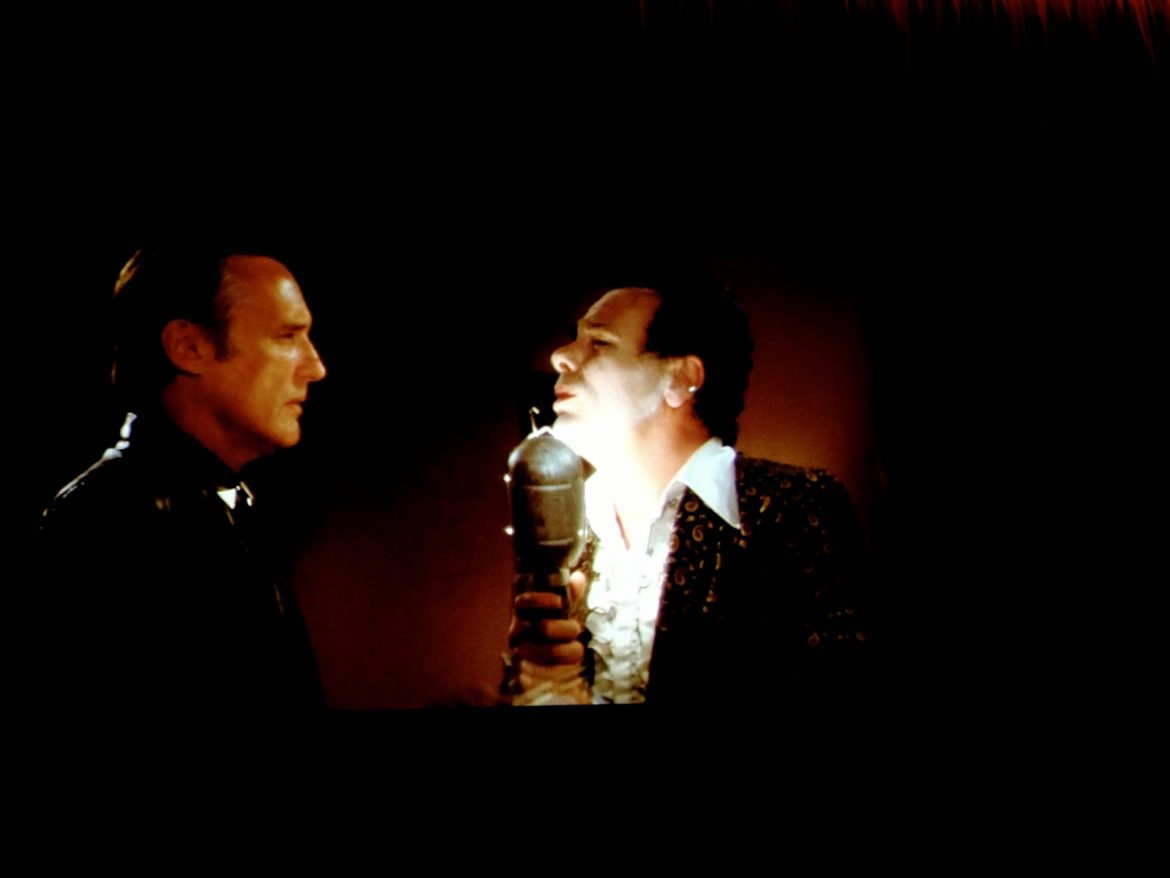I won’t lie – I’ve always found Roy Orbison kind of creepy. And I say this as a fan.
I know “Oh, Pretty Woman” was supposed to make us feel warm and fuzzy in the Julia Roberts film of almost the same name, but it filled with me dread instead. “This isn’t going to end well,” I thought, improbably, about Pretty Woman. The combination of Orbison’s classic croon, his weird ethereal falsetto, the ever-present black shades and his doughy features combine to make everything about him a little eerie and not altogether right. He’s almost a 1950s balladeer, but not quite.
And so he’s perfect for a David Lynch film.
Lynch’s masterpiece Blue Velvet is the story of psychosexual violence and deep weirdness hidden just below the surface of suburbia. Its iconic sequence of images at the start – a hyper-glossy, slow-motion montage of Norman Rockwell-esque wholesomeness that zeroes in on the grass, and then the ants, and then the severed ear that sets the plot in motion – is basically a mission statement, the film in miniature. It’s a journey through the looking glass/ear canal, and leans heavily on Lynch’s fixation on finding surreal contrasts in the everyday.
As such, Orbison’s “In Dreams” is right in his wheelhouse. On its surface, it’s a loping love song, a sad lament about the one who got away and who now can only be encountered, well, in dreams. But, from the first line on, it also conjures up nightmares. The opening lines might have been intended in some romantic way – “A candy-colored clown they call the sandman / Tiptoes to my room every night” – but as far as I’m concerned, it sounds like a horror movie premise and my first impulse isn’t to swoon but to run away in abject terror.
In one of Blue Velvet’s most disturbing scenes, the great Dean Stockwell – in freak-out make-up, lit by a lamp standing in for a spotlight and microphone, standing before a crowd of bizarre criminals and Kyle MacLachlan’s kidnapped Jeffrey, in way, way over his head – lip-syncs the song. Dennis Hopper’s psychotic Frank Booth is framed next to him, mouthing the words in turn and seeming deeply affected. (As an earlier version of the title song makes clear, music has a big effect on Frank.)
It’s creepy and comic for the same reason – surreal incongruity, which is David Lynch in an admittedly simplistic nutshell.
Speaking for myself, this song and scene are now indistinguishable. By which I mean: if you sneak up behind me and start singing, “The candy-colored clown they call the Sandman,” I might lose my mind.
Seriously, don’t do that.

